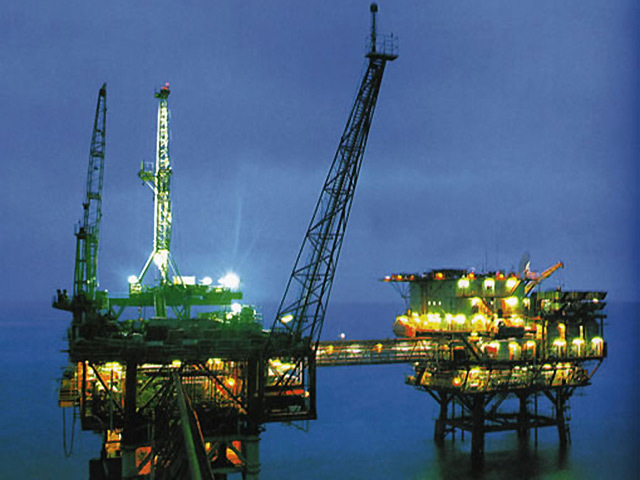
Anti-China protests sparked by the placement of an oil rig in disputed waters off the Vietnamese coast damaged factories, with some plants closing and China’s embassy in Hanoi advising its nationals to minimize outings.
Vietnam’s government has called for the removal of the Chinese exploration rig that was placed in waters near the contested Paracel Islands, with Prime Minister Nguyen Tan Dung describing the move as “extremely dangerous.” Thousands protested in multiple marches in Ho Chi Minh City on May 11, and hundreds protested in Hanoi.
Taiwanese companies with factories in Vietnam halted operations, with some citing damage to plants from the protests.
“The workers are not choosing from which country the factory belongs,” said Bob Hsu, general manager of Taiwan’s Great Super Enterprise Ltd., which has closed its garment factories in the southern province of Dong Nai. Protesters looking at company names “are just trying to find a Chinese word. It includes Korean, Japanese factories.”
“I asked the local police to protect my workers,” Hsu said today in Ho Chi Minh City. “We moved staff outside. I am worried, so we are destroying any Chinese words in the logo.”
Formosa Chemicals & Fibre Corp.’s Vietnam unit halted operations and is assessing damages, the company said in a statement to the Taiwan Stock Exchange. Headway Advanced Materials Inc., Sanitar Co. Ltd., Advanced International Multitech Co. and Yung Chi Paint & Varnish Manufacturing Co. were among those announcing temporary closures. Advanced International said its plant suffered damage and items were stolen yesterday after an anti-China demonstration.
Protesters targeted the Vietnam-Singapore Industrial Park and other industrial parks in the southern province of Binh Duong yesterday, “specifically manufacturing companies that are owned and/or managed by Chinese as well as Chinese expatriates working for other companies,” the industrial park said in an e- mailed statement.
“During the night the protesters set fire to three factories,” it said in the statement. “There are no reported casualties. The local police are on site and have taken over security of both industrial parks.”
About five companies’ factories were damaged by fire, according to Mai Cong Danh, deputy chief of the Binh Duong police.
“We are sending officials to the scene now,” he said today by phone.
Taiwan condemned the violence affecting its factories and people, according to a statement on the website of Taiwan’s Ministry of Foreign Affairs. The ministry urged Vietnamese to restrain from “irrational acts” and asked the government to protect people’s safety and property.
Hundreds of companies in Binh Duong were vandalized during demonstrations yesterday, with Chinese, Taiwanese and South Korean-owned plants affected, online news service VnExpress reported. The VnExpress report included a photo of a company draping a South Korean flag over the Chinese characters on the sign of the company outside a factory in Binh Duong.
The U.S. Consulate-General in Ho Chi Minh City sent a statement to its citizens in the country warning about demonstrations “aimed at Chinese-affiliated companies and factories in and around Ho Chi Minh City and Binh Duong province.” The Chinese embassy in Vietnam posted a statement on its website urging nationals to avoid unnecessary outdoor activities.
“There’s a lot of concern about it,” said Nate Herman, the Arlington, Virginia-based vice president of international trade for the American Apparel & Footwear Association, in an interview today during a visit to Ho Chi Minh City.
“It seems to be an issue where protesters are targeting any factory they think is Chinese-owned, and maybe because of a lack of understanding they seem to also be targeting Taiwanese and Korean-owned factories,” Herman said. “It just seems to be a nationalistic issue where people are taking out their frustration with China against anything that resembles Chinese.”
U.S. State Department spokeswoman Jen Psaki said on May 8 that China had engaged in “dangerous conduct and intimidation” over the rig. Chinese Foreign Ministry spokeswoman Hua Chunying said last week the U.S. should stop irresponsible comments that encouraged some countries to take provocative maritime actions.
Vietnam and China fought a border war in 1979, with ties normalized in 1991. Vietnamese history over the last two thousand years has been characterized by Chinese incursions into what Vietnam says is its territory, and streets in cities are regularly named after heroes from those conflicts.